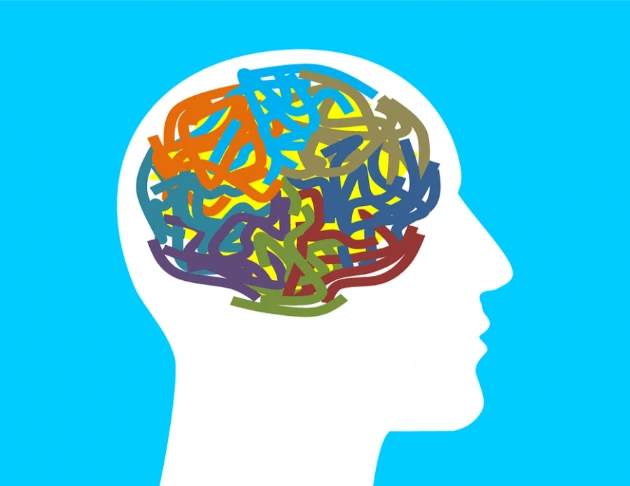We all carry with us a mental road map, a map composed not of streets, highways, or intersections but of memories, beliefs, emotions, and choices. Unlike a traditional road map that guides us physically from point Y to point Z, our internal maps are far more abstract, complex, and often uncharted. These mental territories are shaped by our experiences, cultural conditioning, personal goals, and subconscious biases. They guide how we think, how we perceive the world, and how we make decisions, but they are also fluid, constantly evolving as we encounter new ideas, people, and situations.
As we venture through life, we all face a question: How do we navigate the unknown spaces in our minds? These uncharted territories, much like unexplored regions on a map, hold the potential for discovery, growth, and transformation. Yet, most of us are unaware of how much power these internal landscapes have in shaping our reality.
Let’s explore how unmapped territories of the mind influence our lives and how we can intentionally become explorers of these mental spaces.
1. The Cognitive Map: A Model of Thought and Perception
In psychological terms, our cognitive map refers to the mental representation we create of our surroundings. While physical maps help us find our way in the world, our cognitive map helps us interpret it. It includes our beliefs, knowledge, and experiences, all guiding our understanding of the world. But this map isn’t static. It’s shaped by countless external and internal factors, from the culture we grow up in to the media we consume.
For example, if you grew up in an environment where logic and structure were prioritized, your mental map of the world may lean heavily on analytical thinking. On the other hand, if you were raised in a more emotionally-driven or creative environment, your internal map may prioritize intuition and feelings.
In this sense, our cognitive maps are constructed through a combination of our experiences, how we were raised, and how we process the information that comes our way. But what happens when our internal map leads us to unexpected places, or even becomes stagnant, unable to evolve with our changing circumstances? This is where the uncharted territories of the mind lie, those places in our psyche that we avoid exploring or don’t even realize exist.
2. The Role of Subconscious Bias in Navigating Mental Territories
Much like the incomplete lines on old maps, many parts of our mental landscapes are shaped by subconscious influences. These biases often stem from deeply rooted cultural norms, early childhood experiences, and societal conditioning. As a result, many of us traverse these internal landscapes based on assumptions and preconceptions that have never been challenged.
Consider, for instance, how gender biases influence decision-making. From a young age, individuals may be conditioned to believe certain traits or behaviors are inherently masculine or feminine. These biases become so ingrained that they act as a mental shortcut, guiding decisions and judgments without conscious thought.
Another key area of uncharted mental terrain is emotional intelligence. Many individuals struggle to navigate the emotional landscapes of their minds. Fear, anger, joy, and sadness are powerful emotions that influence our actions, yet we often overlook how these emotions shape our thinking patterns.
Understanding how subconscious bias impacts our actions is the first step to navigating these uncharted territories. By becoming aware of these biases, we gain the ability to reroute our mental maps and choose new paths, paths that lead to more empowered, conscious decision-making.
3. Exploring the Uncharted Territories: Self-Discovery and Personal Growth
So, how do we begin to explore the uncharted territories of our minds? The key lies in self-awareness and mindfulness. By paying attention to our thoughts, emotions, and behaviors, we can uncover mental patterns that no longer serve us and replace them with healthier, more productive ways of thinking.
Here are a few ways to venture into those unknown areas:
• Challenge Your Assumptions: Examine the mental maps you’ve created for yourself. Are you following outdated routes simply because they feel familiar, even though they may not lead to where you want to go? By asking yourself tough questions and being open to change, you can begin to map out new pathways.
• Embrace Uncertainty: Often, the unknown is where the most growth happens. When you push yourself to step outside your comfort zone, you not only discover new territories within your mind but also increase your resilience and adaptability. This is where true innovation and creativity are born.
• Practice Mindfulness: Mindfulness allows you to step back from your usual thought patterns and observe your reactions without judgment. By becoming more aware of how you think and feel, you can better understand the unconscious influences that guide your decisions.
• Explore Your Emotions: Our emotions often hold keys to unlocking deeper layers of our psyche. By regularly reflecting on your feelings and identifying their sources, you begin to map your emotional landscape — leading to more emotional intelligence and deeper understanding of yourself.
Conclusion: Navigating the Mind to Build Meaningful Connections
In the ever-evolving world of communication, understanding the uncharted territories of our minds is more critical than ever. By exploring the ways in which our mental maps, unconscious biases, and emotional landscapes shape the way we communicate, we can create deeper, more impactful connections with others, making us more effective communicators and leaders. One of the most powerful aspects of exploring these uncharted territories is the ability to rewrite our own narrative. By engaging in deep self-reflection, questioning long-held beliefs, and stepping outside of our comfort zones, we can reprogram our mental map and create a future that is more aligned with our true selves.
For communications professionals, the journey is one of constant self-discovery and growth, constantly re-exploring old assumptions, discovering new paths, and paving the way for more effective, empathetic, and transformative communication strategies.
Instagram Post
What if your greatest potential isn’t something to be gained, but something already within you, waiting to be discovered?
At Priori Orators, we believe just that.
Communication isn’t just about pouring in new knowledge, it’s about discovering what’s already there. That inner knowing. That a–priori wisdom that often lies hidden beneath our assumptions, biases, and unexamined thought patterns.
We all carry mental maps built from our upbringing, culture, emotions, and experiences. These maps guide how we show up, how we speak, how we connect. But many parts remain uncharted – parts shaped by unconscious knowledge we haven’t learned to interpret or express.
Mental evolution means venturing inward to discover these hidden regions – Here’s how the journey begins:
• Challenge your assumptions – Are your beliefs serving your growth or limiting it?
• Embrace uncertainty – Growth often hides in the unknown.
• Practice mindfulness – Awareness is the compass that reveals hidden patterns.
• Decode your emotions – Your feelings are not flaws; they’re signals.
• Structure your thoughts – Often, people know what they mean; they just need help organizing it clearly and powerfully.
When you actively explore your internal landscape, you gain more than self-knowledge – you gain power:
• The power to communicate more meaningfully.
• The power to build empathy with others.
• And the power to transform your narrative.
Because in the end, the real transformation isn’t just about understanding your mind, It’s about using that understanding to connect more deeply, speak more clearly, and lead more powerfully.







